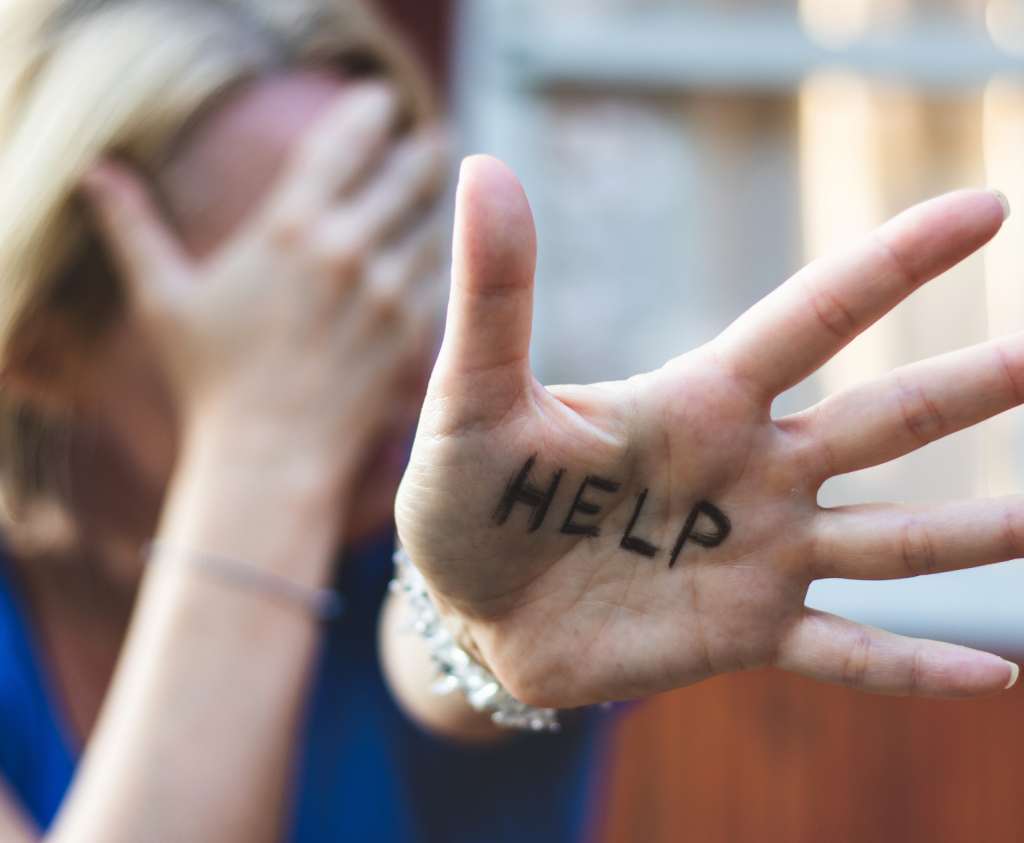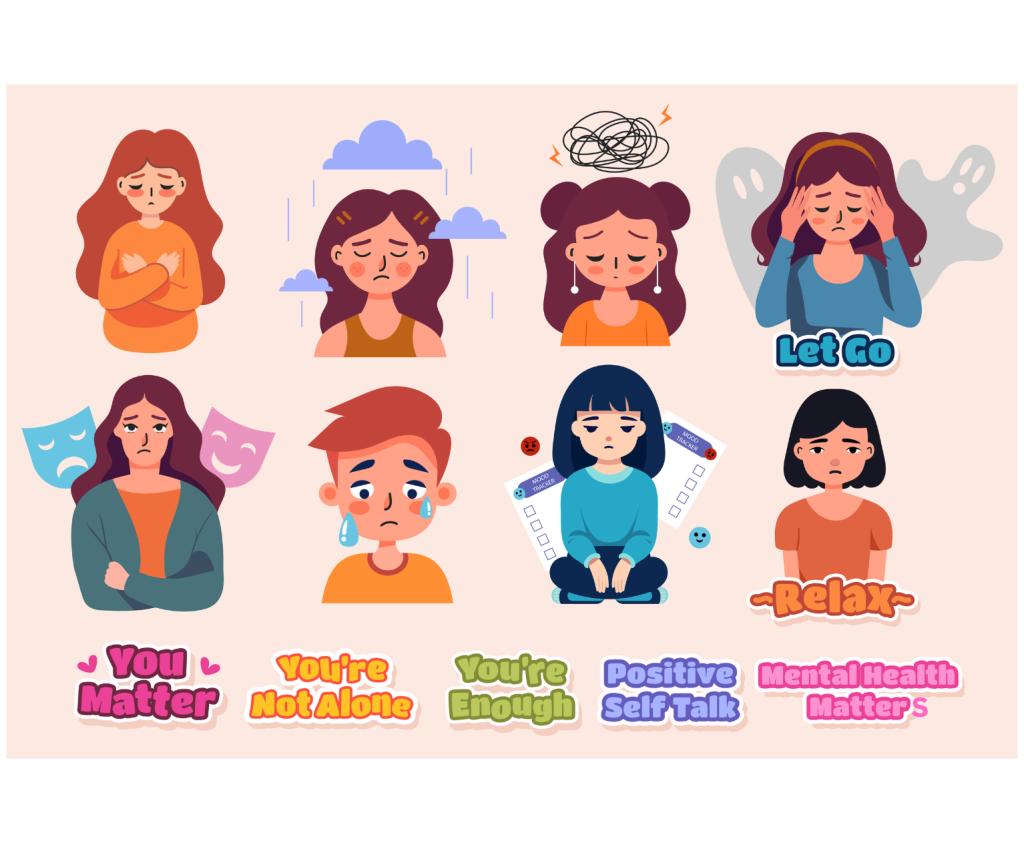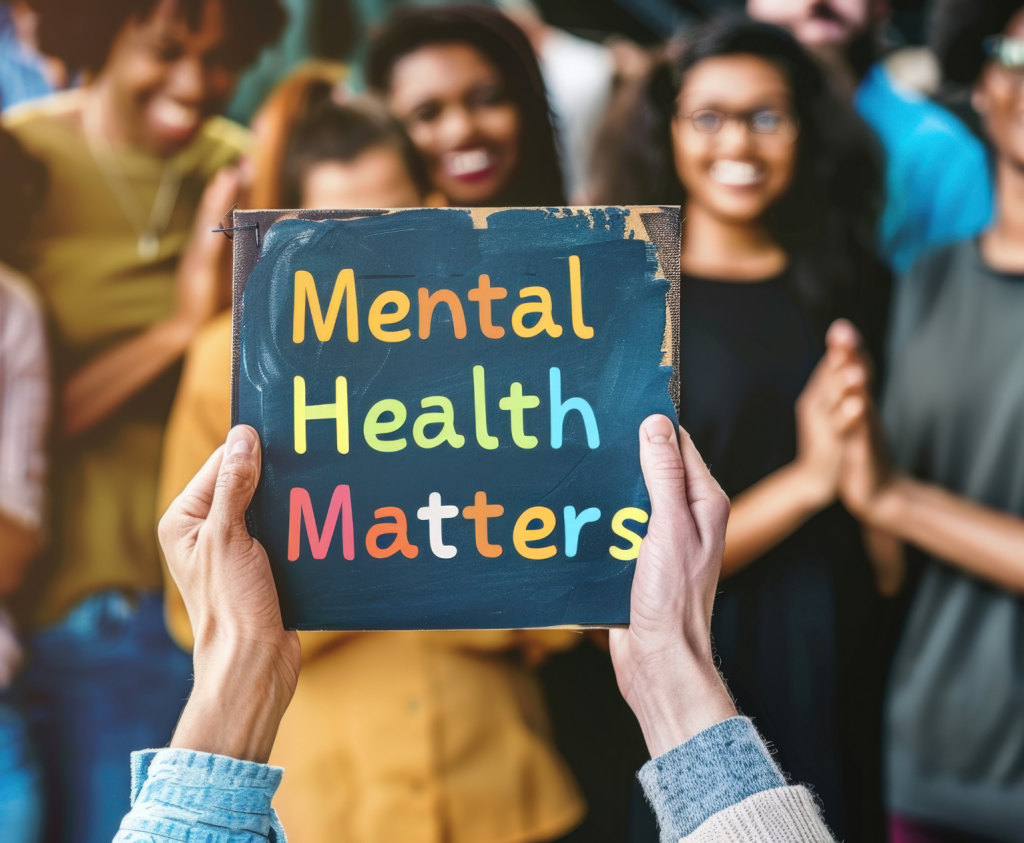
As we progress through Mental Illness Awareness Week (October 6 to October 12), it’s crucial for each of us to take a moment to reflect on the importance of mental health in our lives. Mental health is just as essential as physical health, yet it often carries a stigma that prevents many from seeking the help they need. This week serves as a powerful reminder that it’s okay to talk about mental health and that seeking support is a sign of strength.
Understanding Mental Illness
Mental illness affects millions of people globally, with conditions ranging from anxiety and depression to bipolar disorder and schizophrenia. These are real, medical conditions that can impact every aspect of life—our relationships, our work, and our overall happiness. Unfortunately, the stigma surrounding mental illness can lead individuals to feel isolated and reluctant to seek help.

Recognizing that mental health issues are not a sign of weakness is crucial. Just as you would consult a doctor for a physical ailment, prioritizing your mental well-being is essential for leading a fulfilling life.
Why This Matters
Ignoring mental health challenges can have serious repercussions, not only on personal well-being and relationships but also on workplace dynamics and productivity. When we openly discuss mental health and encourage one another to seek help, we create a supportive community where everyone feels valued.

Activities to Promote Good Mental Health
To foster a culture of well-being, consider engaging in the following activities during Mental Illness Awareness Week and beyond:

- Mindfulness and Meditation: Explore mindfulness practices through apps or local workshops. These techniques can help reduce stress and enhance focus.
- Take a Mental Health Day: Don’t hesitate to take a day off for self-care. A break can provide the space needed to recharge and regain perspective.
- Join Support Groups: Whether virtual or in-person, support groups can offer a safe space to share experiences and coping strategies with others who understand.
- Resource Sharing: Educate yourself about mental health resources available in your community or online. Knowing where to turn for help is vital.
- Physical Activity: Engage in physical activities, whether it’s joining a gym, going for a walk, or participating in a local sports league. Exercise is proven to boost mood and alleviate stress.
- Lunch and Learn Sessions: Attend informal gatherings focused on mental health topics. Learning more about mental wellness can help reduce stigma and promote understanding.
- Creative Outlets: Engage in creative activities like painting, writing, or music. These outlets can provide therapeutic benefits and help express emotions.
- Anonymous Feedback: If you have suggestions for mental health resources or activities at work, consider sharing your thoughts anonymously to foster a culture of improvement.
The Importance of Seeking Professional Help

One of the most significant steps you can take for your mental health is to seek professional help when needed. Just like you would consult a doctor for a physical issue, reaching out to a mental health professional is essential when dealing with mental health challenges. Therapy, counseling, and other forms of professional support can lead to significant improvement and well-being.
Remember, seeking help is a proactive step toward healing and growth. It’s okay to ask for help, and it’s essential to prioritize your mental health.
BHS EAP Services Available to You
At K College, we understand the importance of mental health support for every employee. That’s why we offer Behavior Health Systems’ Employee Assistance Program (EAP) services to all K College employees, regardless of benefit status, which includes six (6) free, annual visits with a licensed counselor.
These services include:
- Assessment and short-term counseling for a variety of issues including:
- Marital/Family
- Interpersonal Relationships
- Stress-Related Problems
- Depression
- ADD/ADHD
- Work-Related Problems
- Alcohol & Drug Abuse
- Life Transitions
- All levels of mental health providers covered (Masters, Psychologist, and Psychiatrist)
- Face-to-face assessment on every case
- Personalized touch (i.e., live reception)

If you need support, please call 800-245-1150 or visit www.behavioralhealthsystems.com for more information and resources. Our BHS Care Coordinator is Stacey Grayson.
Desiring More Informational Resources?
Here are some resources that can be referenced for the information discussed in the article on mental health awareness:
- National Alliance on Mental Illness (NAMI): Provides extensive information on mental health conditions, resources for support, and advocacy for reducing stigma.
- Website: nami.org
- Mental Health America (MHA): Offers resources, screenings, and information on mental health topics and awareness campaigns.
- Website: mhanational.org
- Centers for Disease Control and Prevention (CDC): Provides statistics and information on mental health issues and the importance of mental health in overall well-being.
- Website: cdc.gov/mentalhealth
- World Health Organization (WHO): Focuses on global mental health issues and promotes awareness and education around mental health.
- Website: who.int/mental_health
- Behavioral Health Systems (BHS): Information on Employee Assistance Programs (EAP) and mental health services for employees.
- Website: behavioralhealthsystems.com
- American Psychological Association (APA): Offers resources on mental health research, treatments, and strategies for promoting mental wellness.
- Website: apa.org
These resources can provide further reading and support for anyone interested in learning more about mental health awareness and reducing stigma.
Conclusion
As we observe Mental Illness Awareness Week, let’s take the opportunity to break the silence surrounding mental health. By reducing stigma, promoting good mental health practices, and encouraging professional help, we can create a more supportive and understanding community. Remember, taking care of your mental health is just as crucial as caring for your physical health. Let’s start the conversation and support one another on this journey toward well-being.

